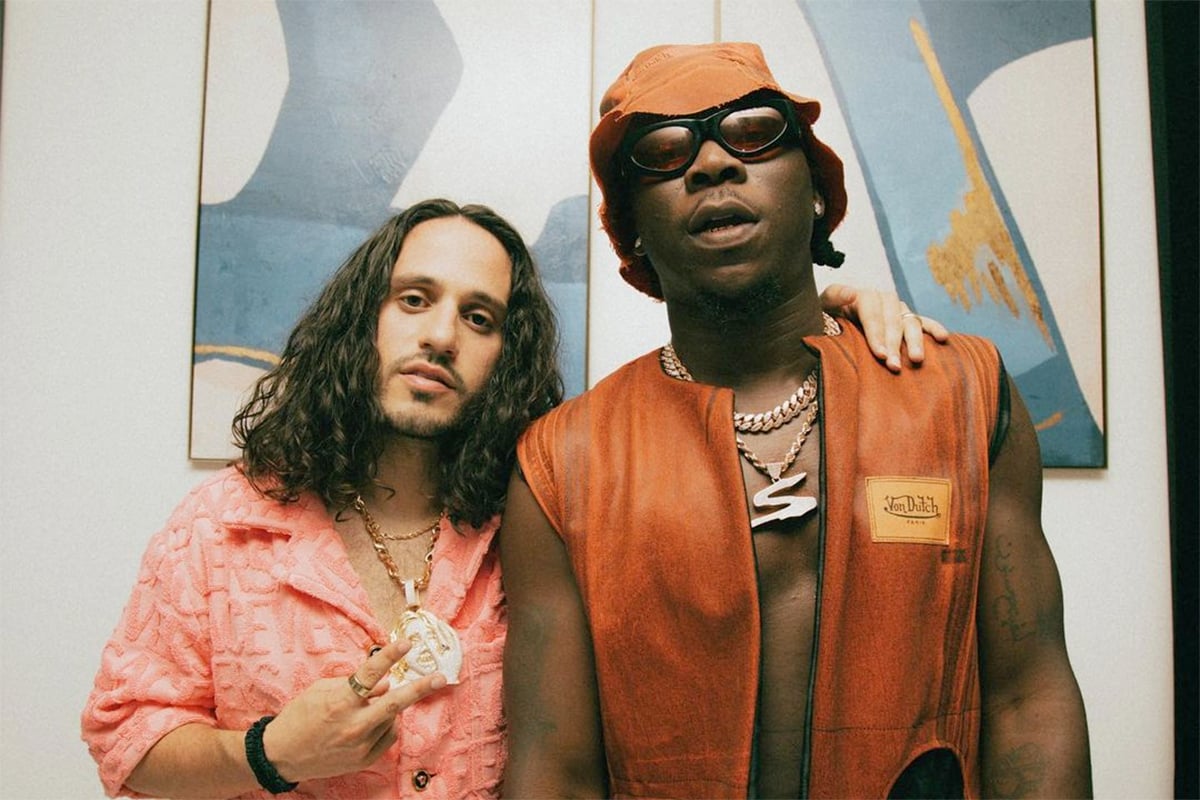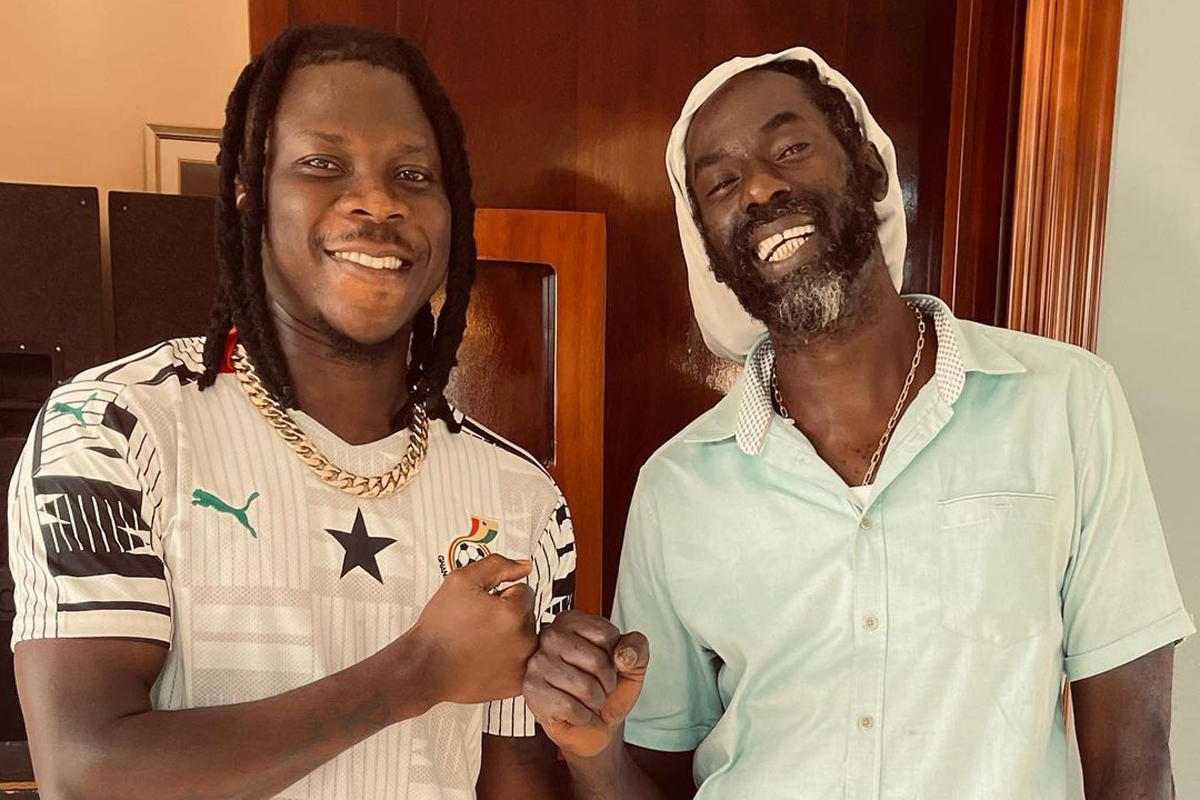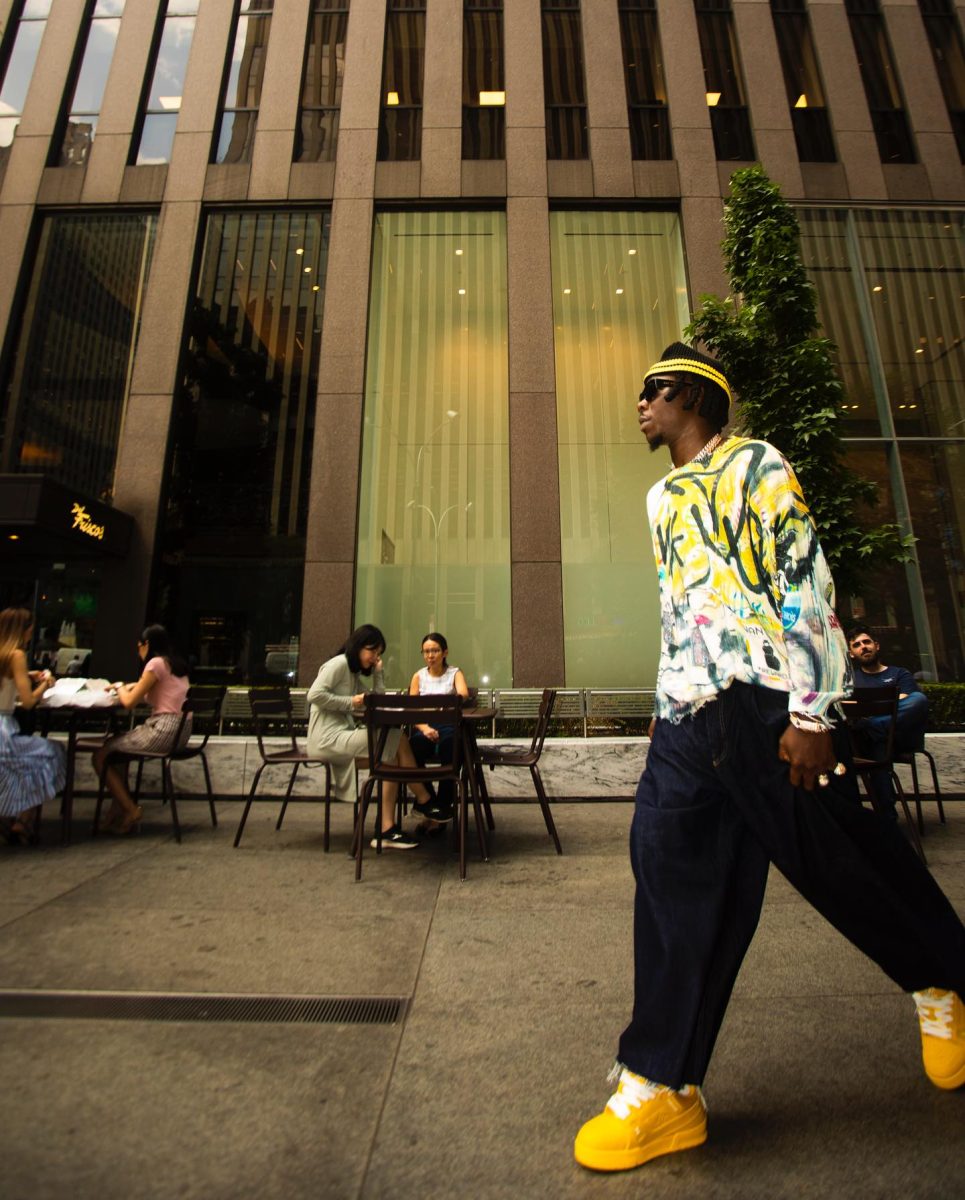Interview: Stonebwoy Talks ‘Life And Money’ With Russ, And The Influence Of Reggae And Dancehall On Afrobeats

Ghanaian artist Stonebwoy dropped a new remix of his track Life And Money with US rapper Russ today (Friday, July 28). Along with the new fix also came new visuals to appease fans.
Life And Money, a potent synthesis of the genres — Afrobeat, Dancehall, Reggae, and Rap — speaks about the spiritual and physical awareness of money and its impact on one’s life.
“The song is about life and money, so the song tells you about the conscious aspects of life, and the necessity of money as well and how to balance it,” Stonebwoy said in an interview with DancehallMag.
The music video, which was shot in Atlanta by director Denzel Williams, (who also directed Stonebwoy’s projects collaborating with Keri Hilson, and Vic Mensa), depicts the vibe of the track well. As Stonebwoy carries the rhythmical hook: “I just want to see my people make money and make this life a happy place,” scenes capture him and Russ in unhindered moods among friends partying and enjoying life.
“The amazing thing about it [the music video] is that it represents both the spirituality and physicality of what the song is speaking about,” the Activate singer said.
Commended by Stonebwoy for his, “amazing and unique style”, Russ mixes his smooth raps (while sampling some Jamaican patois) to strengthen the song’s narrative.
“No matter what, I’mma love my life, naa scared ah man with gun or knife [inaudible] mi haffi do is enjoy, enjoy. Fame doesn’t have to be employed, employed cause I put the work in, no one get hurt yeah, I’mma make sure we alright…” he sings.
For the Ghanaian star, whose real name is Livingstone Etse Satekla, fusing the genres of Afrobeat, Reggae, and Dancehall will always be a priority, as it represents who he is as a musical artist.
“I am a complete example, if there is none at all of that, I have been and shall forever be an Afro-Dancehall-Reggae artist,” Stonebwoy said.
“That’s why I do all these Reggae festivals, I do all these Reggae shows. I be the first Ghanaian artist to perform in Jamaica at Reggae Sumfest, at Rebel Salute, carrying the Jamaican culture along with me as if I was born in Jamaica, and carrying the African culture with me – ofcourse I was born in Africa,” he continued.
For this Afro-fusion entertainer, there is no segregation of these genres, as he is focused purely on the talent, people, culture, and art of the music. That said, he would like to see more unity in music, especially Jamaican and African collaborations.
The Into The Future singer pointed to the recent teaming of Bryon Messia and Burna Boy in the Taliban II remix as an example. “These are the collaborations that we need to do,” he said.
“This is the way to go. When the Afrobeat, and Dancehall, and Reggae come together in unity, there’s a shock all over the world. This is where we need to be, this is how we need to condition this and bring it together like I’ve always seen and believe and feel. So instead of a comparison, let us bring this together and see how the world goes ‘round,” he said.
Stonebwoy, who arguably holds the record for Jamaican collaborations as an African artist, has worked with a plethora of talents from the island, including Beenie Man, Sean Paul, Jesse Royal, Mutabaruka, Kabaka Pyramid, Sizzla Kalonji, Agent Sasco, Jahmiel, 10Tik, Tarrus Riley, Chi Chi Ching, and I-Octane to name some.
Stonebwoy’s new album 5th Dimension also sees him collaborating with Shaggy on the song, My Sound, and Dexta Daps on Secret Lover.
Next, Stonebwoy has his sights set on someday having the pleasure of working with Bounty Killer, and his icon Buju Banton. “I’m looking at the greatest of all greatest, who just released an album, Buju! He was one of the founding fathers you know,” he said with great optimism for a future collab.

While speaking with DancehallMag, Stonebwoy spoke passionately about the influence Reggae and Dancehall music has on Afrobeats and credited Jamaican music for paving the way for the new-age genre.
“It’s really because of Reggae and Dancehall music here in the West that I have been booking the shows to levels where you know we have Afrobeat that has come off it,” he said. “Definitely it is because of how far Reggae and Dancehall went, the black portion of it that Afrobeat has also been able to get a lot of recognition to this point.”
According to the Muchacha singer, the genres of Reggae, and Dancehall belong to black people as a whole. “Nobody can disqualify the fact that the black representation of Reggae music, being an element wherever it comes from, is black represented – it comes from Africa,” he said.
“I consider myself a culture custodian, that is ofcourse a student of the history, a student of blackness, that is continuing to explore our people and embrace what we have as black people and don’t let anybody tell you anything else.”
“Reggae music in a nutshell belongs to Jamaicans, it’s created in Jamaica, and belongs to Africans as much as it belongs to Jamaicans,” he said in clearing his previous remarks that Reggae music “belongs to Africans” and not Jamaica.
“It’s like Afrobeat belongs to Jamaica and the Caribbean as much as it belongs to Africans because we are black.”
“If you’re not black and you’re white, if you’re Spanish, if you’re Indian, or Caribbean, ofcourse it has the root somewhere. Wherever you come from, if there is black in there that’s where my history is coming from,” he continued.
Regarding his views on the current state of Reggae and Dancehall music, the Afro-fusion star takes umbrage at the thought of the genre fading out.
“I don’t think Dancehall is dead, I don’t think the genre is dead … I don’t buy that idea because Afrobeat is here to stay and that in a way stands for Reggae, stands for Dancehall. These are genres that are erupting from the motherland that is Africa.”
“We should all understand that there is so much diversity from Africa, so for me, the genres of music are doing amazingly well across the globe, which would be Reggae, which would be Dancehall, which would be Afrobeat.”
“I don’t see any necessary sense in the propagation of comparison of Afrobeat, Reggae, and Dancehall because when you think of Reggae, you can find elements of African and Afrobeat in there. When you think of an Afrobeat song, you can usually find elements of Reggae and Dancehall in it,” he stated.
Currently, the Afro-Dancehall-Reggae artist is on tour promoting his latest album 5th Dimension. The 17-track set debuted at No. 8 on the Billboard Reggae Albums Chart.
Along with Stonebwoy’s Dancehall features, Shaggy and Dexta Daps, there are also collaborations on the album with Davido, Tiwa Savage, Oxlade, Jaz Karis, DJ Maphorisa, Mereba, Angelique Kidjo, and Stormzy on the original version of the track Love and Money.
Fans can check out Stonebwoy’s ‘5th Dimension North America Tour’ stops and dates below:

